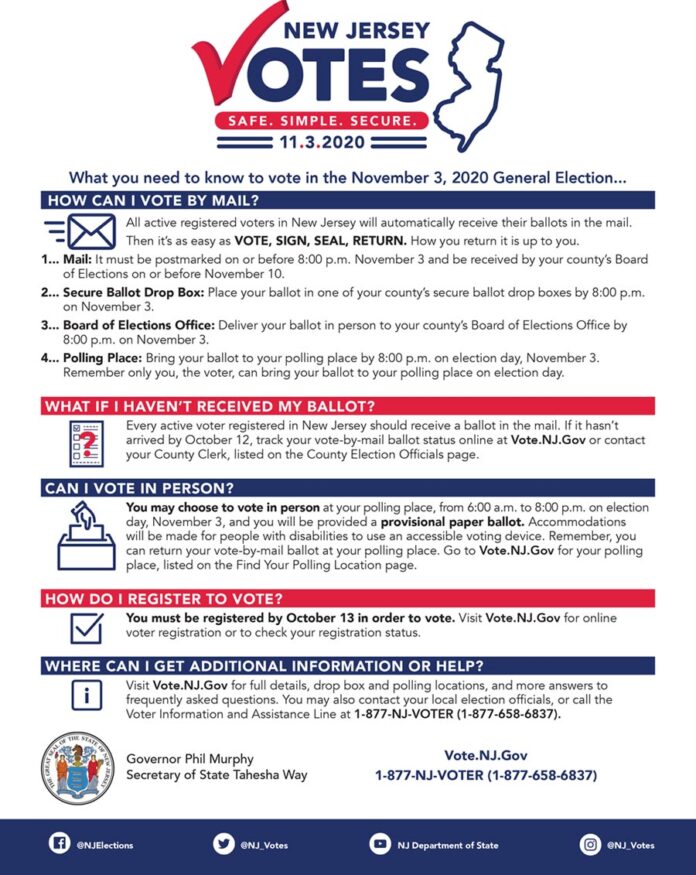New Jersey prides itself on a robust democratic process, constantly striving to balance accessibility with the integrity of our elections. As discussions around voting rights continue nationwide, a significant bill advancing through the New Jersey Assembly has brought the issue of voter identification squarely into focus. At Explore New Jersey, we believe in keeping you informed about the legislative developments that directly impact your participation in our democracy.
The “John R. Lewis Voter Empowerment Act of New Jersey”: A Pivotal Moment
On Thursday, an Assembly committee took a critical step by advancing the “John R. Lewis Voter Empowerment Act of New Jersey.” This comprehensive piece of legislation, sponsored by Assemblywomen Verlina Reynolds-Jackson and Shavonda Sumter, aims to bolster voting rights and ensure equitable access to the ballot box for all eligible New Jerseyans, particularly minority and language-minority groups. Proponents argue that the bill is essential to protecting the right to vote and combating potential disenfranchisement, especially in the context of federal actions that some see as attempts to suppress voters.
The bill’s objectives are multifaceted: it seeks to protect the right of voters to have their ballots cast and counted, ensure that eligible voters face no undue obstacles in registering, and provide equitable access for all groups to participate fully in the electoral process. It proposes to reinforce voter protections by requiring that election-related statutes, rules, and regulations favor voter participation, and it aims to address issues like voter suppression, intimidation, and the right to pursue legal action against discrimination.
The Heart of the Debate: Voter ID and its Implications
One of the most widely discussed provisions within this bill is its potential to ban voter ID requirements in New Jersey. Currently, New Jersey does not generally require voters to present identification at the polls, unless they did not provide valid identification when registering. If this bill passes, it would further solidify a no-voter-ID standard for most situations.
This specific provision has ignited a robust debate. Proponents of the ban argue that requiring photo identification can create unnecessary barriers to voting, particularly for vulnerable populations such as the elderly, students, low-income individuals, and those who may not have readily accessible government-issued photo IDs. They contend that the goal should be to expand access and encourage participation, not to create new hurdles in a system where in-person voter impersonation fraud is already exceedingly rare.
However, the proposed ban on voter ID has also met with strong opposition. Assemblyman Michael Inganamort (R-Morris) voiced significant concerns during the committee hearing, labeling the legislation as “deeply flawed.” He argues that such a ban disrespects election officials, adds unnecessary costs to taxpayers, and could introduce confusion into a system that he believes already functions well. Opponents of a ban often emphasize that voter ID requirements are crucial for maintaining election integrity and increasing public confidence in the electoral process. They point to polling data that suggests public support for photo ID measures, even among minority groups.
Beyond Voter ID: Other Provisions and Concerns
The “John R. Lewis Voter Empowerment Act” is broader than just voter ID. It seeks to modernize and restore protections akin to the federal Voting Rights Act, which has seen some of its provisions weakened over time. The bill proposes:
- A new cause of action for vote dilution and denial.
- Expanded language assistance provisions to ensure all communities can participate.
- A preclearance requirement, which would mean certain election policy changes would need prior approval to prevent discriminatory practices before they can harm voters.
- A “Democracy Canon” to guide interpretation of election laws.
- A centralized database for election data and information.
However, opponents like Assemblyman Inganamort have also raised alarm about other aspects of the bill. He contends that the legislation grants judges excessive authority, potentially allowing them to overturn elections, redraw districts, modify election dates, and even mandate ranked-choice voting. He refers to this as “judicial activism on steroids,” suggesting it could fundamentally alter the balance of power in elections. Concerns have also been raised about the creation of a new public institute to collect election data, potentially duplicating efforts and increasing taxpayer costs.
What’s Next for Election Integrity in New Jersey?
The advancement of the “John R. Lewis Voter Empowerment Act” by the Assembly committee marks a significant moment in New Jersey’s ongoing conversation about election integrity. As the bill progresses through the legislative process, these debates will undoubtedly continue, touching on fundamental questions about voter access, security, and the future of our democratic process. The outcome of this legislation will have a profound impact on how New Jerseyans register, cast their ballots, and ultimately make their voices heard in upcoming elections.
At Explore New Jersey, we encourage all residents to stay informed about these vital discussions, understand the potential implications, and engage with their elected officials.
For the latest updates on this critical bill and other important developments shaping New Jersey’s political landscape, visit our dedicated Politics section.












